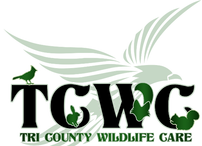Mountain Lions are intimidating predators who avoid contact with humans in most circumstances. There are many things that can be done to safeguard people, pets and livestock from mountain lions.
Mountain lions naturally avoid human contact, but if seen should be met with loud noise like shouting and movements that make people appear larger such as raising and waiving arms. Lions naturally chase prey, so running or turning a back towards a mountain lion should never be done. Mountain lions natural diet includes fawns, so people should not feed deer. Feeding deer brings the deer closer to people and pets and the mountain lions will naturally move closer as well endangering pets and small livestock.
We live with mountain lions and need to take precautions to protect livestock that may be naturally preyed upon because they are easier to catch than their natural diet of fawns. Llamas, donkeys and guardian dogs may be considered for various types of livestock to live amongst and protect them.
Fencing can also protect livestock and deter mountain lions. Trees should be trimmed around fence lines to avoid providing a place where mountain lions can climb over. Birthing barns can also help prevent baby animals from being preyed upon when they are most vulnerable as newborns. Electric fencing can deter mountain lions from entering fenced areas. It is advised that electric strands run at the top and bottom of fence lines to be most effective.
Mountain lions may only be killed if a predation permit is obtained. Three conditions are considered for this permit which is issued for a specific lion who is killing livestock or pets, poses a threat to public safety or is preying upon endangered bighorn sheep.
Mountain lions are protected from hunting and are protected if they wander into populated areas unless they pose an immediate threat to public safety. With care and planning, mountain lion interaction can be avoided and pets and people can be safeguarded. Please call 209-283-3245 if you need assistance with mountain lions.
LEARN MORE:
Mountain lions naturally avoid human contact, but if seen should be met with loud noise like shouting and movements that make people appear larger such as raising and waiving arms. Lions naturally chase prey, so running or turning a back towards a mountain lion should never be done. Mountain lions natural diet includes fawns, so people should not feed deer. Feeding deer brings the deer closer to people and pets and the mountain lions will naturally move closer as well endangering pets and small livestock.
We live with mountain lions and need to take precautions to protect livestock that may be naturally preyed upon because they are easier to catch than their natural diet of fawns. Llamas, donkeys and guardian dogs may be considered for various types of livestock to live amongst and protect them.
Fencing can also protect livestock and deter mountain lions. Trees should be trimmed around fence lines to avoid providing a place where mountain lions can climb over. Birthing barns can also help prevent baby animals from being preyed upon when they are most vulnerable as newborns. Electric fencing can deter mountain lions from entering fenced areas. It is advised that electric strands run at the top and bottom of fence lines to be most effective.
Mountain lions may only be killed if a predation permit is obtained. Three conditions are considered for this permit which is issued for a specific lion who is killing livestock or pets, poses a threat to public safety or is preying upon endangered bighorn sheep.
Mountain lions are protected from hunting and are protected if they wander into populated areas unless they pose an immediate threat to public safety. With care and planning, mountain lion interaction can be avoided and pets and people can be safeguarded. Please call 209-283-3245 if you need assistance with mountain lions.
LEARN MORE:


